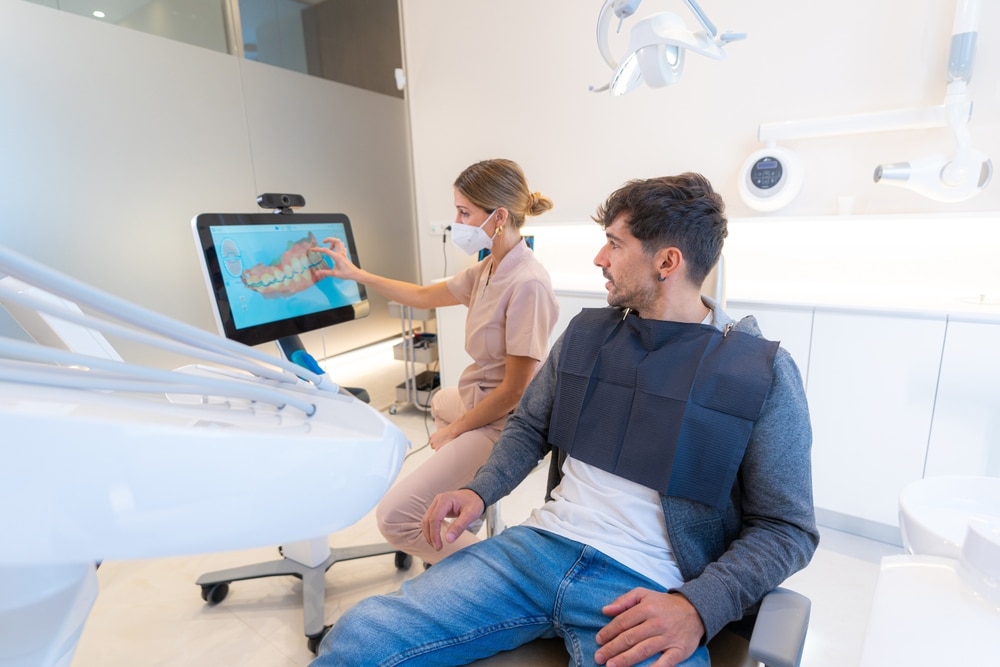The Impact of Slow Network Performance on Dental Patient Care
Efficient network performance is a cornerstone of successful dental practices—unfortunately, many dental offices experience slow network performance, which can significantly hinder patient care. But fear not—there are solutions to this pervasive problem.
Understanding the Problem
What Causes Slow Network Performance in Dental Practices?
Dental offices rely heavily on their IT infrastructure to support various functions, such as scheduling, electronic health records (EHR), and digital imaging. When network performance lags, it can disrupt these crucial operations, leading to delays and frustration for both staff and patients.
Common causes of slow network performance include outdated hardware, insufficient bandwidth, network congestion, and misconfigured network settings. Determining and understanding the root cause is the first step in resolving these issues.
The Ripple Effect on Patient Care
A slow network doesn’t just inconvenience staff—it directly impacts patient care. Delays in accessing patient records or scheduling appointments can lead to longer wait times, increased patient anxiety, and even compromised care quality. In an industry where time is of the essence, efficiency in network performance is vital.
Recognizing the Signs of Network Issues
Symptoms of a Troubled Network
Recognizing the symptoms of a slow network can help dental practices address issues before they escalate. Common signs include:
- Lagging or frozen computer systems
- Delayed access to patient records
- Interrupted or dropped VoIP calls
- Slow or failed uploads of digital X-rays or images
If your dental practice experiences any of these symptoms, it’s time to take action.
How to Fix Slow Network Performance
Conduct a Network Assessment
The first step in fixing slow network performance is conducting a thorough network assessment. This involves evaluating your current IT infrastructure, identifying bottlenecks, and pinpointing areas for improvement. A professional dental IT service provider can perform this assessment and offer tailored solutions.
Upgrade Network Hardware
Outdated routers, switches, and other hardware components can significantly slow down network performance. Upgrading to modern, high-speed equipment can enhance network efficiency and reliability. Consider investing in hardware that supports the latest wireless standards to future-proof your practice.
Optimize Network Configuration
Misconfigured network settings can lead to unnecessary slowdowns. Make sure your network is configured correctly to achieve the best performance. This includes setting up quality of service (QoS) rules to prioritize traffic and reduce congestion.
Increase Bandwidth
If your practice has grown, your bandwidth needs may have increased as well. Evaluate your current internet plan and consider upgrading to a higher bandwidth option. This can provide the speed needed to support multiple users and devices without lag.
Implement Network Monitoring Tools
Network monitoring tools assist in overseeing your IT infrastructure and identifying issues before they affect patient care. These tools provide real-time insights into network performance, enabling proactive maintenance and prompt resolution of any issues.
The Role of Dental IT Services
Why Partner with a Dental IT Service Provider?
Partnering with a dental IT service provider ensures your network is optimized for peak performance and reliability. These experts offer various services, including network assessments, hardware upgrades, and ongoing support and maintenance.
Benefits of Professional IT Support
Professional IT support can offer numerous benefits, including:
- Reduced downtime and increased efficiency
- Expert troubleshooting and problem resolution
- Regular updates and maintenance to prevent issues
- Enhanced cybersecurity measures to protect patient data
By utilizing dental IT services, your practice can concentrate on providing patient care without the stress of IT issues.
Future-Proofing Your Dental Practice
Staying Ahead of Technological Advancements
The IT landscape is always changing, making it essential to keep up with technological advancements for optimal network performance. Regularly assess your IT infrastructure and make necessary upgrades to keep your practice running smoothly.
Investing in Training and Education
Training your staff to effectively use your dental IT systems can enhance network performance. Invest in training and education to help your team make the most of your IT resources and troubleshoot minor issues independently.
Slow network performance can have a profound impact on dental patient care, causing delays and compromising the quality of service. However, by understanding the causes, recognizing the signs, and implementing effective solutions, dental practices can overcome these challenges.
Partnering with a dental IT service provider can further enhance network efficiency, ensuring that your practice remains at the forefront of patient care. Investing in IT infrastructure and training fosters a seamless, efficient environment for both staff and patients.
Don’t let slow network performance hold your practice back. Take action today to optimize your IT systems and provide the exceptional care your patients deserve.
For more details on dental IT maintenance and dental IT network support contact Priority Networks today!




